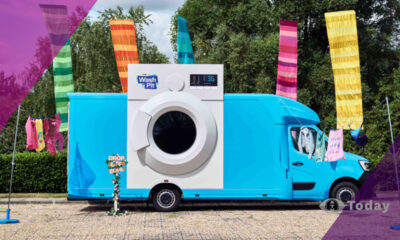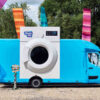A right royal Sunday of specials…
Plumbworld, the UK’s leading bathroom and kitchen expert, is working alongside Anne Simmons, a former royal maid who worked in the palace for over a decade, to highlight an alarming risk to pet health: the dangers of automatic Febreze sprays.
Despite being a household favourite for maintaining a fresh-smelling home, these air fresheners may pose a hidden threat to pets, including those in royal households, who are often exposed to harmful chemicals without owners even realising.
Simmons, who has extensive experience with the royal household’s cleaning practices, reveals, “In royal homes, we made sure to avoid products like Febreze automatic sprays. While they are effective at masking odours, their chemical ingredients can be harmful, especially to pets who are in constant contact with the air in those rooms.”
Dr. Nathalie Clarke, a veterinarian with over 12 years of experience, warns that products like Febreze automatic sprays contain chemicals such as phthalates and volatile organic compounds (VOCs), which can pose significant risks to animals’ respiratory systems. “When pets are exposed to these chemicals, they can experience symptoms like coughing, sneezing, or even more severe respiratory issues. Cats and dogs, particularly, have more sensitive respiratory systems than humans,” explains Dr. Clarke.
Dr. Clarke also points out that many pets, especially those in royal homes, spend much of their time in well-ventilated, enclosed areas where air fresheners can linger for longer periods of time, increasing the likelihood of exposure. According to recent studies, nearly 30% of pet owners report that their pets have experienced health issues related to air fresheners, with respiratory problems being the most common.
As Anne Simmons explains, royal homes take extra care to avoid the use of certain products due to the potential health risks posed to their animals. “Pets in royal households have access to many parts of the estate, and that means being exposed to the air around them,” she says. “Any harmful chemicals in the air can be easily inhaled by pets, causing unnecessary health issues that are often hard to trace.”
Royal cleaning routines prioritise the health of the household’s members, including pets. Simmons adds, “Instead of automatic sprays, we used natural and pet-safe alternatives, ensuring the air was fresh but without compromising the health of our beloved pets.”
While effective at providing a quick fix for bad odours, automatic air fresheners contain toxic chemicals that can accumulate in the home environment. “Many of these chemicals are not only harmful to pets but also to humans, especially young children and the elderly,” says Dr. Clarke. “When pets inhale these substances over time, it can lead to long-term health complications, particularly in older animals or those with pre-existing health conditions.”
Safer alternatives for your home
Experts recommend the following pet-safe alternatives to automatic air fresheners:
- Essential oil diffusers with pet-safe oils such as lavender, eucalyptus, and chamomile.
- Baking soda as a natural deodoriser. Simply place bowls around the home to absorb odours naturally.
- DIY air fresheners using water and a few drops of pet-friendly essential oils.
- Proper ventilation by opening windows regularly to allow fresh air to circulate.
To keep your home smelling fresh without risking the health of your pets, it’s essential to avoid products that contain harmful chemicals. By opting for natural alternatives, you can create a healthier environment for your pets and family.











